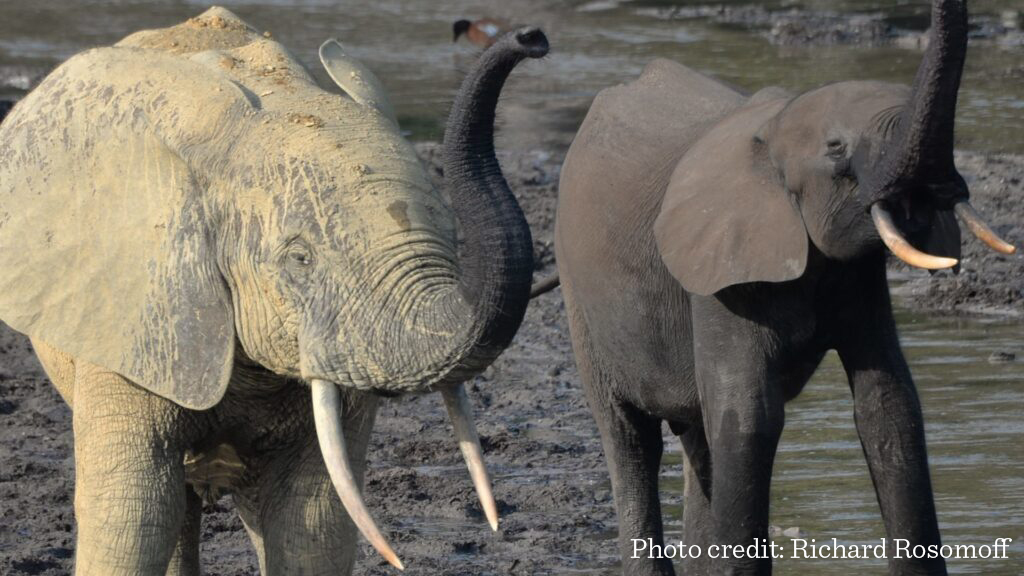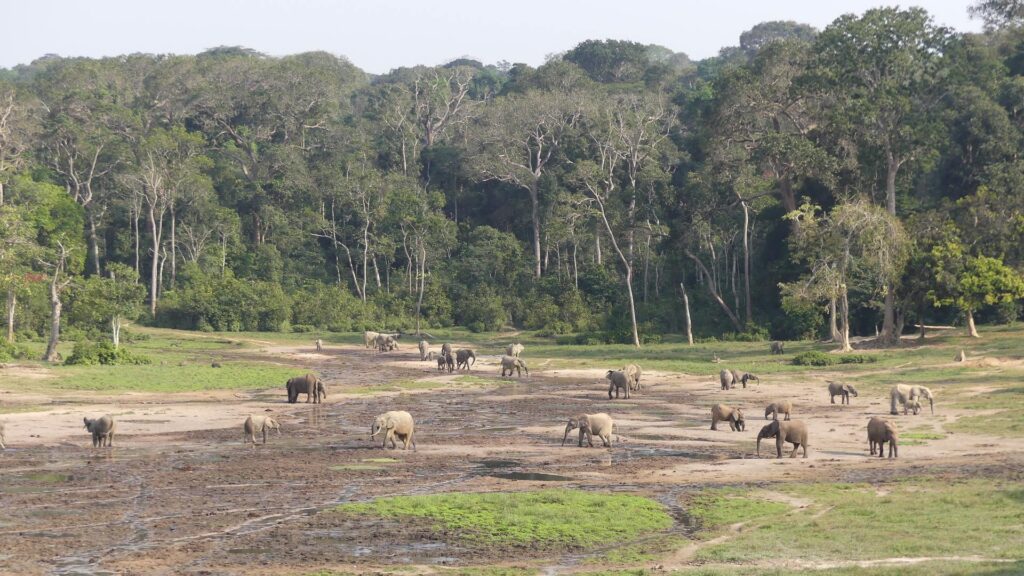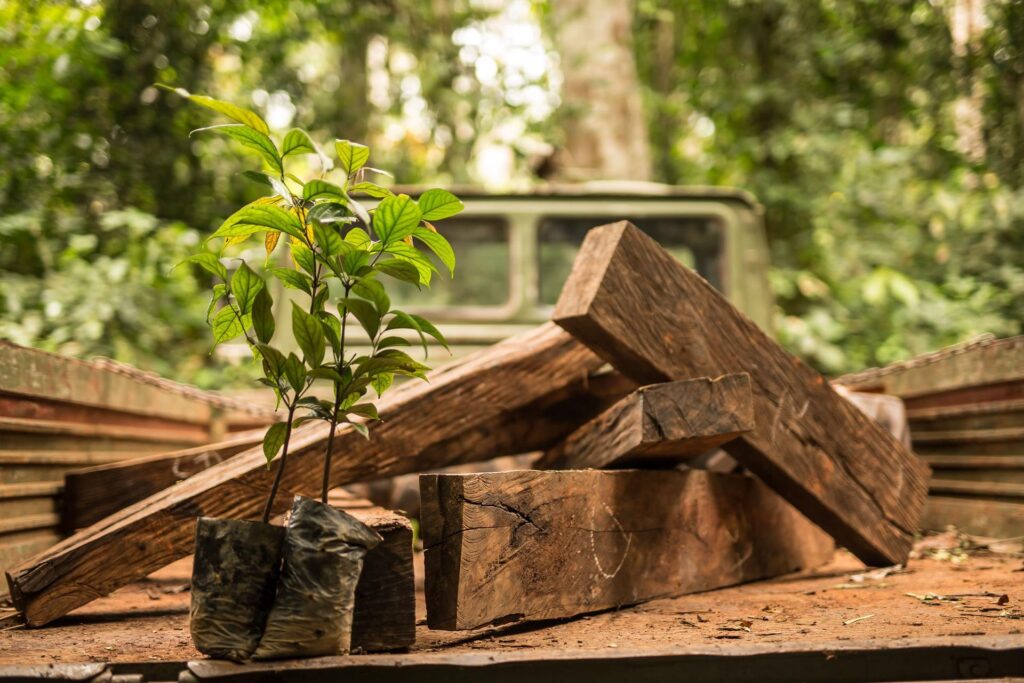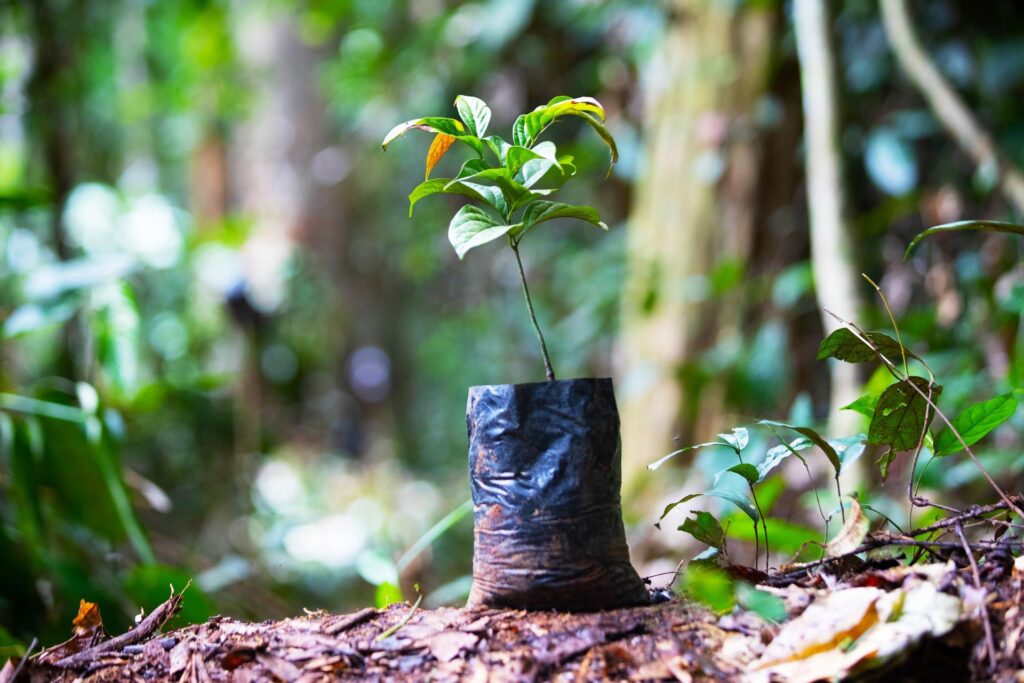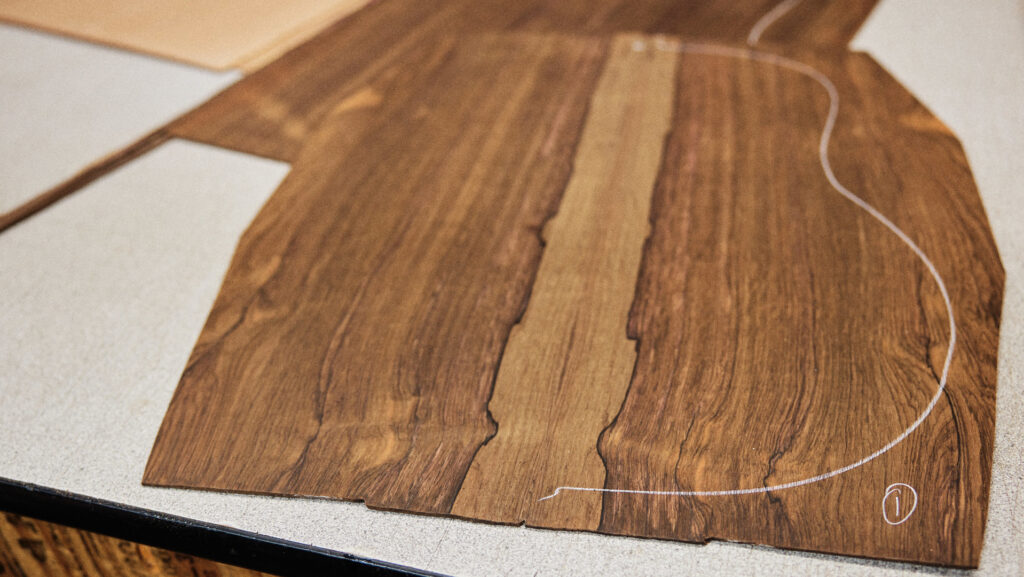New findings from The Ebony Project reveal the vital role African forest elephants play in cultivating the growth of ebony trees.
When Bob Taylor co-founded Taylor Guitars back in 1974, he could hardly have imagined that nearly 50 years later, his journey as a luthier would intertwine with research on elephant poop in Africa. Yet, that’s precisely what has unfolded. It turns out, as highlighted in the esteemed journal Science Advances, that elephant dung has played a vital role for Taylor Guitars—and for many other makers of stringed instruments too.
The research published in Science Advances was also discussed on NPR’s All Things Considered. Listen to the clip below.
In 2016, Bob met Dr. Tom Smith, a UCLA conservation biologist, in Yaoundé, Cameroon. Taylor Guitars had recently co-purchased a rundown ebony mill, and Bob and his team were dedicating over 100 days annually to restoring it. A year earlier, Tom had founded the Congo Basin Institute (CBI) just across town—a partnership between the International Institute of Tropical Agriculture and UCLA. At the urging of the U.S. Ambassador to Cameroon, who knew them both, they agreed to meet. A few weeks later, Bob pledged to fund a new initiative called The Ebony Project, and this is when guitar making hit the fan.
The concept was straightforward: CBI would implement a community-driven ebony planting initiative, targeting the planting of 15,000 ebony trees while also carrying out much-needed essential ecological research on the species. Dr. Zac Tchoundjeu, a Cameroonian agroforestry expert and colleague of Tom’s, suggested that in addition to ebony, it would be beneficial to plant locally prized fruit trees, addressing the crucial issue of food security in the communities where the project would work.
Fast-forward nearly a decade, and the progress has been astonishing. Under the guidance of Dr. Vincent Deblauwe and an expanding team of Cameroonian scientists, The Ebony Project has successfully planted over 40,000 ebony trees and 20,000 fruit trees. Additional financial backing has come from the Global Environmental Facility and the Franklinia Foundation, with the endeavor receiving recognition from National Geographic, Forbes, Reuters, and the BBC.
The project did more than what it set out to do, but what was totally unexpected (at least to Taylor Guitars) is the latest independent peer-reviewed project-funded research now featured in Science Advances.
As guitar players, we know that ebony is known for its density, durability and smooth finish—making it perfect for fretboards. Almost every Taylor guitar ever produced has included an ebony fretboard, and here’s the kicker: the African ebony tree (Diospyros crassiflora Hiern) that we have always used depends on the African forest elephant (Loxodonta cyclotis) to reproduce. You want an ebony fretboard in the future? You might want to support elephant conservation in the Congo Basin today.
The Birds and the Bees and the Flowers and the Trees
Trees have a fascinating way of reproducing through seeds. Some seeds are lightweight and designed to be carried away by the wind, while others are sheltered inside fruits. When these fruits fall to the ground and are eaten by animals, the seeds are often excreted far from the parent tree, allowing them to take root and grow into new trees. While most fruits are eaten by any number of mammals and even birds, larger fruits need large mammals.
The African forest elephant is one such mammal, often called “ecosystem engineers” due to their vital role in spreading seeds and preserving the structure and diversity of the forest. As they navigate through the underbrush, they create gaps in the vegetation that promote new growth, shaping the overall makeup of the landscape. While the symbiotic relationship between the ebony tree and elephants has likely been understood by traditional forest peoples for time immemorial, Western science has only recently begun to understand it.
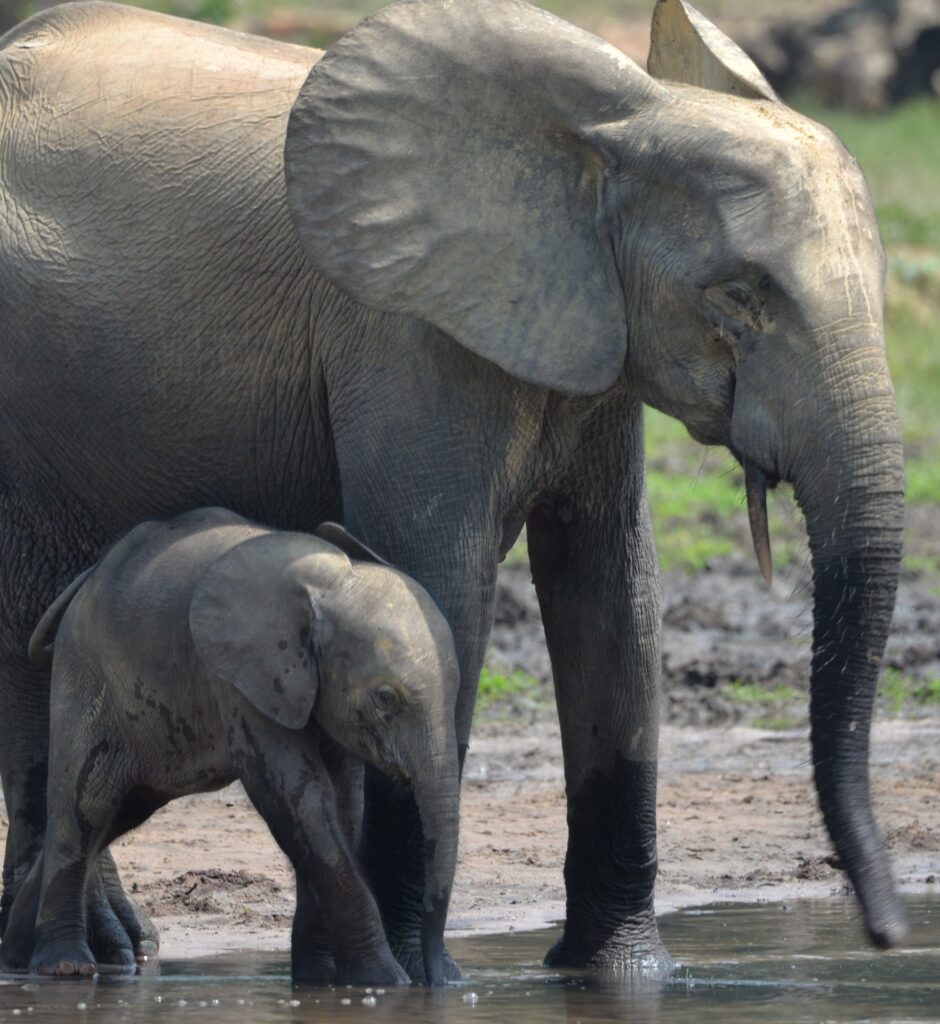
Dr. Deblauwe’s research has revealed some compelling insights into the role of elephants in the Congo Basin rainforest. His findings indicate that the majority of ebony trees thriving today owe their existence to elephants that dispersed their seeds decades ago. Alarmingly, his studies also highlight that in areas where ivory poaching has led to a significant decline in elephant populations, no other species has stepped in to take over their crucial role in seed dispersal. The data clearly shows that the absence of elephants correlates with a noticeable drop in the number of small ebony trees. Where The Ebony Project is currently planting trees, just outside the Dja Faunal Reserve, elephants have not been seen in decades. In the future, the project hopes to extend its plantings further into regions that might connect current elephant populations. Today, the population of African forest elephants has dwindled to just one-third of ebony’s historically understood range.
Ebony Project cameras capture an African forest elephant feeding on ebony fruits (Diospyros crassiflora) in the rainforest of Lobéké National Park, Cameroon
One final discovery: The research also shows that ebony seeds encased in elephant dung enjoy better protection from rodent predation, which dramatically boosts their chances for survival and growth. For those interested in a deeper understanding of this important issue, I recommend checking out the article in Science Advances.
This research is yet another reminder that your guitar is connected to a much wider world, and safeguarding elephants goes beyond animal welfare—it’s vital for sustaining healthy ecosystems and may ultimately impact the future of musical instruments. Think about that the next time you strum a chord.
You can learn more about the Taylor Guitars Ebony Project here.


























